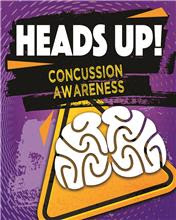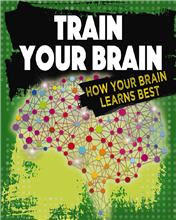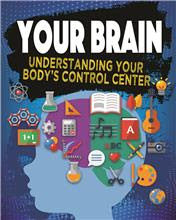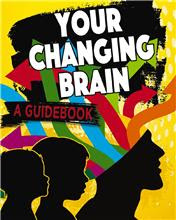| ________________
CM . . . . Volume XXIV Number 36. . . . May 18, 2018
Excerpt:
There is so much to like about the series, “Exploring the Brain”. All four books in the series are current, informative, and engaging. The books are well-illustrated with colourful photos, graphic images, and humorous cartoon brain characters. The books are meant to educate and entertain. They do both very well. The books deal with different aspects of the brain; the brain’s structure and functions, concussion awareness and treatment, brain-based learning strategies, and brain development during adolescence. The books follow the traditional format of nonfiction books for this age level. Each book begins with a table of contents and includes a bibliography, glossary, index, author biography, and a list of additional information which includes Canadian and American resources. Throughout the books are suggested activities called “Brain Labs”, critical thinking questions in “Think About It!” boxes, and case studies. Three of the books are written by the same authors, Jeff Szpirglas and Danielle Saint-Onge. These three books include a summary chapter called “Wrap It Up!”. It is unfortunate that the fourth book, Heads Up! Concussion Awareness, written by Simon Rose, doesn’t include this feature. Heads Up! Concussion Awareness examines a common brain injury. It describes in age-appropriate language what a concussion is, what the causes, signs and symptoms are, and most importantly, what you can do to protect yourself from a concussion. Readers are encouraged to tell someone if they or someone they observe is experiencing symptoms of a possible concussion. A “Brain Lab” activity gives instructions for students to set up four concussion stations where students can experience simulations of what it is like to have a concussion. It can be difficult to imagine what a concussion feels like if you have never had one. In the classroom, set up a number of stations for you and your classmates to visit. This exercise helps you to understand some of the things that might happen to the senses after a head injury. Train Your Brain: How Your Brain Learns Best begins with an explanation of how the brain works and then examines some recent research which has led to new understandings about neuroplasticity, growth mindset, mindfulness, and how our brains create connections. A “Brain Lab” activity teaches readers “Belly Breathing” in four easy steps, and a section on meditation includes a discussion of research by psychology professor Richard Davidson. When Davidson analyzed the data, he noticed that the meditative states revealed that the anterior insula region of the brain became activated – a place associated with well-being in the rest of the body. Your Brain: Understanding Your Body’s Control Center compares the human brain to a computer’s CPU or Central Processing Unit. The computer is modeled after nature’s greatest CPU - your brain. Stored safely behind your skull and a layer of protective fluid is your brain, weighing in at 3.3 pounds (1.5 kilograms). Some scientists estimate that every second, your body is sending 1.5 million bits of information to your brain for processing. Using correct scientific terminology and clear colorful diagrams, readers learn how the different areas of the brain control our senses, movements, memories, and our fight or flight responses to stimuli. Your Changing Brain: A Guidebook looks specifically at the development of the teenage brain. In addition to information about how nutrition, exercise, and sleep can affect your brain, this book also includes an informative discussion of mental health. Being a teen can be a very busy, stressful, and emotionally demanding time in your life. Many parts of your body are undergoing changes, and you are being given greater freedoms – but with increasing responsibilities. Also, new research indicates that teens’ increasing use of technology and social media means that you are constantly experiencing social stress, making it more difficult to focus on yourself and your own well-being. That’s why it’s so important to learn about your own mental health and how you can put great supports and strategies in place to help you feel physically and emotionally well. “Exploring the Brain” checks all of the boxes for quality source material on the brain for teen and pre-teen readers. The writing style is clear and informative, using scientific vocabulary without jargon. The text is well-supported by diagrams, illustrations, and well-chosen photographs. There are higher level questions to prompt thoughtful reflection and review of content, plus suggestions for activities that students can easily participate in at home or at school. The books in the “Exploring the Brain” series also encourage students to be proactive about caring for their brains. In this case, a little knowledge can go a long way. Highly Recommended. Suzanne Pierson is a retired teacher-librarian, currently instructing Librarianship courses at Queen’s University in Kingston, ON. To comment on this title or this review, send mail to cm@umanitoba.ca.
|



